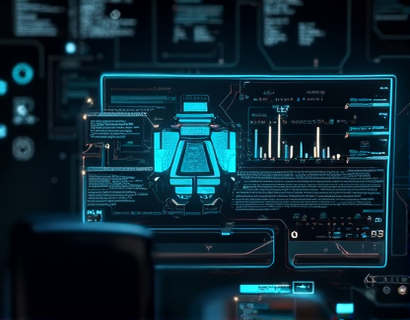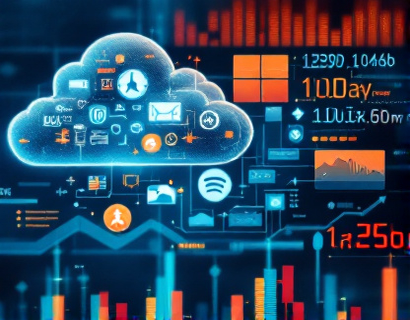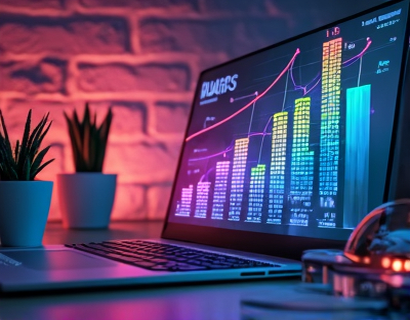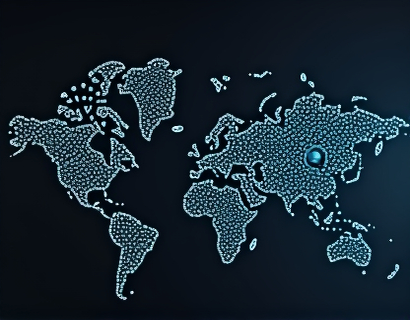Decentralized AI and Crypto: Transforming Digital Experiences in the Ucosystem Era
The intersection of decentralized technologies, artificial intelligence, and cryptocurrency is giving rise to a new paradigm in digital interactions. This era, often referred to as the Ucosystem, is characterized by innovative solutions that leverage blockchain, AI, and decentralized applications to enhance user engagement and redefine digital experiences. This article delves into the transformative potential of these technologies, exploring how they are reshaping the digital landscape and creating new opportunities for users and developers alike.
Understanding Decentralized AI
Decentralized AI refers to the development and deployment of artificial intelligence systems that operate on decentralized networks, primarily blockchain. Unlike traditional AI, which relies on centralized servers and databases, decentralized AI distributes data and computation across a network of nodes. This approach offers several advantages, including enhanced security, privacy, and resilience against single points of failure.
The core idea behind decentralized AI is to harness the collective power of a distributed network to perform complex computations and data processing tasks. By leveraging the resources of multiple participants, decentralized AI can achieve higher efficiency and scalability. This is particularly important for AI applications that require vast amounts of data and computational power, such as machine learning models and natural language processing.
Cryptocurrency and Decentralized AI
Cryptocurrency plays a crucial role in the ecosystem of decentralized AI. Blockchain technology, the underlying framework for cryptocurrencies, provides a secure and transparent way to manage transactions and data sharing. In the context of decentralized AI, cryptocurrency serves multiple purposes:
- Incentivization: Cryptocurrency can be used to reward participants for contributing computational resources or data to the network. This incentivizes more users to join and actively participate, thereby enhancing the overall performance and reliability of the AI system.
- Data Ownership: Blockchain ensures that data remains under the control of its owners, providing a level of privacy and security that is often lacking in centralized systems. Users can choose to share their data selectively and receive compensation in cryptocurrency for doing so.
- Decentralized Governance: Cryptocurrency and blockchain can facilitate decentralized governance models for AI systems, allowing community members to have a say in decision-making processes. This democratizes the development and management of AI applications, making them more transparent and accountable.
Enhancing User Engagement through Decentralized Applications
Decentralized applications (dApps) built on the principles of decentralized AI and cryptocurrency are redefining user engagement in the digital space. These applications offer a more interactive and rewarding experience compared to traditional web and mobile apps. Here are some ways in which dApps enhance user engagement:
Firstly, the use of cryptocurrency as a medium of exchange within dApps creates a direct economic incentive for users. Users can earn tokens or coins by participating in various activities, such as providing data, solving puzzles, or contributing to the development of the platform. This token economy fosters a sense of ownership and motivation among users, encouraging them to actively engage with the application.
Secondly, decentralized governance models empower users to have a voice in the development and direction of the dApp. Through decentralized autonomous organizations (DAOs), users can propose and vote on changes, ensuring that the application evolves in line with the community's needs and preferences. This level of user involvement not only increases engagement but also builds trust and loyalty.
Thirdly, the transparency and immutability of blockchain technology provide a secure environment for user interactions. Users can trust that their data and contributions are safely stored and that the application operates as intended. This trust is crucial for fostering long-term user engagement and retention.
Redefining Interactions in the Digital Landscape
The integration of decentralized AI and cryptocurrency is not just about enhancing user engagement; it is also about redefining the fundamental interactions in the digital landscape. Traditional digital platforms often rely on centralized control and data ownership, which can lead to issues such as data breaches, privacy concerns, and user disempowerment. In contrast, the Ucosystem approach promotes a more equitable and user-centric model:
One key aspect is the decentralization of data. By storing data on a blockchain, users retain control over their information, deciding who can access it and for what purpose. This shift empowers users and reduces the risk of data misuse. Additionally, the use of decentralized AI ensures that data processing and analysis are performed in a transparent and fair manner, without the biases often introduced by centralized algorithms.
Another significant impact is the creation of interoperable and modular digital services. Decentralized platforms can easily integrate with other dApps and services, forming a seamless ecosystem where users can move freely and interact with various applications. This interoperability is facilitated by standardized protocols and smart contracts, which ensure compatibility and smooth data exchange.
Innovative Tech Solutions in the Ucosystem
The Ucosystem is home to a variety of innovative tech solutions that leverage the synergies between decentralized AI, cryptocurrency, and blockchain. Some of these solutions include:
1. Decentralized Machine Learning Platforms: These platforms allow developers to build and train machine learning models using decentralized data sources. By pooling data from multiple users, these platforms can create more robust and accurate models without compromising privacy.
2. Tokenized Identity Verification: Blockchain-based identity verification systems use cryptocurrency to secure and manage digital identities. Users can control their identity data and choose to share specific attributes with services, enhancing both security and user experience.
3. Decentralized Marketplaces: These marketplaces enable peer-to-peer transactions for a wide range of digital goods and services, from content creation to computational resources. Cryptocurrency facilitates seamless and secure transactions, while decentralized governance ensures fair and transparent operations.
4. AI-Powered Chatbots and Virtual Assistants: Decentralized chatbots and virtual assistants powered by AI can provide more personalized and context-aware interactions. By leveraging blockchain, these assistants can maintain user data privacy and offer incentives for users to engage more deeply with the service.
Challenges and Considerations
While the potential of decentralized AI and cryptocurrency is vast, there are several challenges and considerations that need to be addressed:
Firstly, scalability remains a significant issue. Blockchain networks, especially those using proof-of-work consensus mechanisms, can struggle with high transaction volumes and slow processing times. Developing more efficient consensus algorithms and scaling solutions is crucial for the widespread adoption of decentralized AI applications.
Secondly, regulatory uncertainty poses a challenge. The intersection of cryptocurrency and AI falls into a gray area in many jurisdictions, leading to potential legal and compliance issues. Developers and businesses must stay informed about regulatory developments and ensure their solutions comply with local laws.
Thirdly, user education is essential. The complexity of decentralized technologies can be daunting for many users. Providing clear and accessible educational resources can help demystify these concepts and encourage broader adoption.
Conclusion
The convergence of decentralized AI and cryptocurrency is paving the way for a new era of digital experiences, characterized by enhanced user engagement, privacy, and empowerment. The Ucosystem represents a promising future where innovative tech solutions redefine interactions and create a more equitable digital landscape. As these technologies continue to evolve, they will undoubtedly play a pivotal role in shaping the next generation of decentralized applications and services.











































